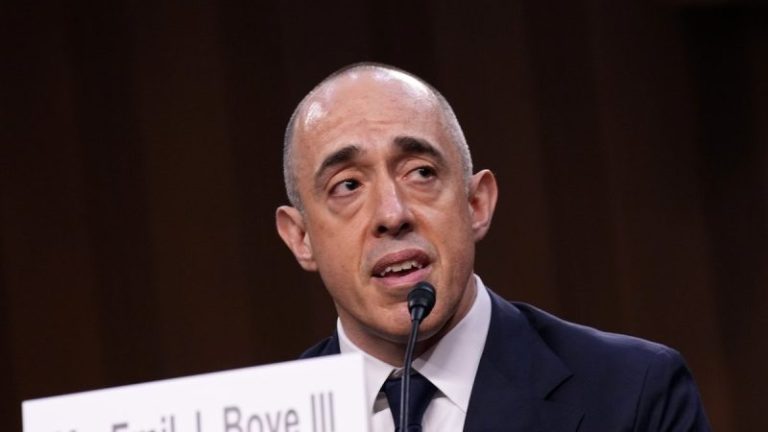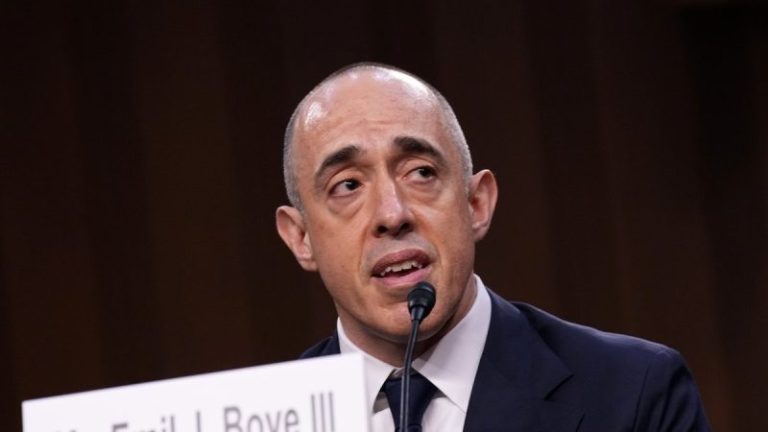Though Senate Republicans were successful in their mission to pass President Donald Trump’s clawback package, not every member of the conference was on board.
Only two Republicans, Sens. Lisa Murkowski, R-Alaska, and Susan Collins, R-Maine, joined with every Senate Democrat to vote against the $9 billion package geared toward clawing back foreign aid and public broadcasting funding.
Senate Republican leaders had hoped that stripping $400 million in cuts to Bush-era international AIDS and HIV prevention funding could win over all the holdouts, both public and private. But the lawmakers who voted against the bill had deeper concerns about the level of transparency during the process and the impact successful rescissions could have on Congress’ power of the purse.
Collins, who chairs the Senate Appropriations Committee, said she agreed with rescissions in general and supports them during the appropriations process, but couldn’t get behind the White House’s push because of a lack of clarity from the Office of Management and Budget (OMB) about exactly what would be cut and how.
She said that ‘the sparse text’ sent to lawmakers included little detail and did not give a specific accounting of programs that would be cut to hit the original $9.4 billion target.
‘For example, there are $2.5 billion in cuts to the Development Assistance account, which covers everything from basic education, to water and sanitation, to food security — but we don’t know how those programs will be affected,’ she said.
Murkowski demanded a return to legislating and appeared to warn that lawmakers were just taking marching orders from the White House rather than doing their own work.
Both Murkowski and Collins were also concerned about the cuts to public broadcasting, particularly to rural radio stations. Both attempted to make changes to the bill during the vote-a-rama. Collins’ ultimately decided not to bring her amendment, which would have reduced the total amount of cuts in the bill to north of $6 billion, to the floor. However, Sen. Mark Kelly, D-Ariz., still brought the change for a vote. And Murkowski offered an amendment that would have drastically reduced the cuts to public broadcasting.
The climactic vote for the bill came hours after tsunami warnings rippled through Alaska, and Murkowski argued that federal warnings were relayed through local public broadcasting.
‘The tsunami warnings are now thankfully canceled, but the warning to the U.S. Senate remains in effect,’ she said. ‘Today of all days, we should vote down these misguided cuts to public broadcasting.’
Still, both attempts to modify the bill failed to pass muster.
Their decision to go against the package left some scratching their heads. Sen. Ron Johnson, R-Wis., argued that the cuts amounted to less than a tenth of a percent of the federal government’s entire budget.
‘This should be a chip shot, OK? I have faith in [OMB Director] Russ Vought,’ he said. ‘I have faith in the Trump administration. They’re not going to cut things that are important spending.’
Sen. Eric Schmitt, R-Mo., who is leading the bill in the Senate, rebuked the duo’s arguments and said that lawmakers weighing in on the rescissions package was in line with their legislative duties.
‘That’s exactly what we’re doing,’ the Missouri Republican said. ‘I would hope that maybe what this will also do is highlight some of the wasteful spending, so when we get into the appropriations process in the next few months that we would be more keen to be focused on saving people money.’
Trump’s bill, which would cancel unspent congressionally approved funding, would slash just shy of $8 billion from the U.S. Agency for International Development (USAID), and over $1 billion from the Corporation for Public Broadcasting (CPB), the government-backed funding arm for NPR and PBS.
Some lawmakers, like Sen. Thom Tillis, who earlier this month voted against Trump’s ‘big, beautiful bill’ over cuts to Medicaid funding, understood where the pair were coming from.
The North Carolina Republican told Fox News Digital that Collins, in particular, would be leading negotiations for an end-of-year bipartisan funding deal with Senate Democrats, and to vote in favor of canceling congressionally approved funding could hurt her ability to find a solution to keep the government funded.
‘I don’t think people really understand the value of your word and your consistency and your living up to commitments and how important that is to getting things done,’ Tillis said. ‘And this, I think, that’s what Susan’s looking at, I think Murkowski is as well, and I respect them for that.’





